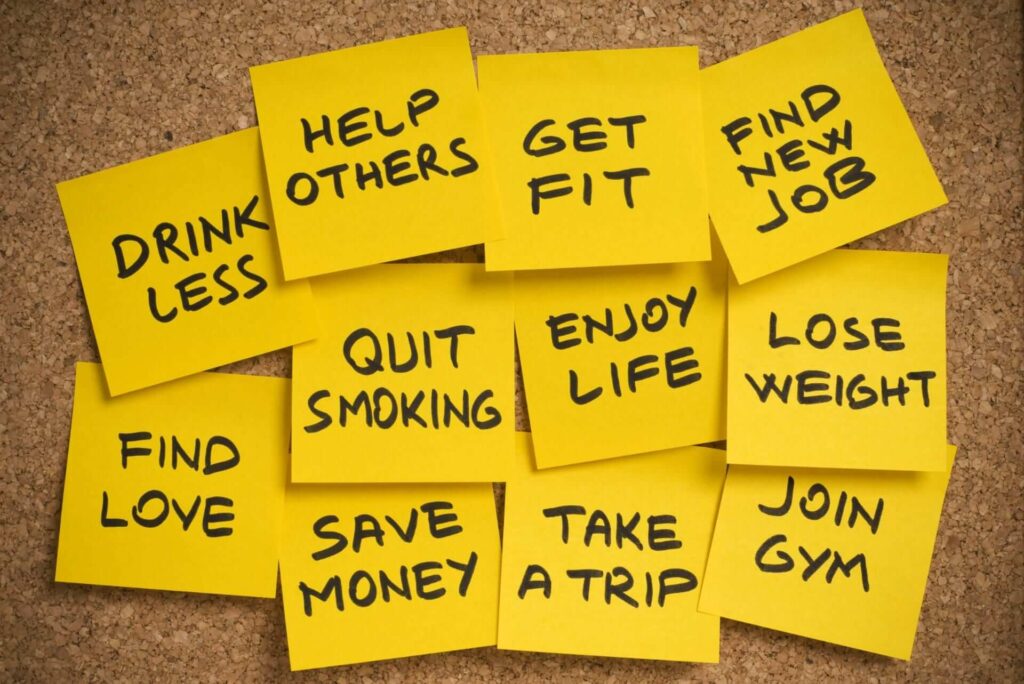by The Cowl Editor on January 17, 2019
Opinion

As a society, we love the idea of a do-over, a second chance to become the people we wish to be. The notion of “new year, new me” provides the opportunity to follow through, even if only temporarily, on goals we have for ourselves.
Every Jan. 1, the inevitable tide of new year’s resolutions comes rushing forth, inspiring conversations about growth and how one can maximize their potential in the coming year. Prime among these are the resolutions to visit the gym more, eat more salads, start a new diet, and lose those “unsightly” extra pounds.
Businesses, particularly those in the health and fitness industry, capitalize on the resolution obsession by offering reduced membership costs and bombarding the television screen with advertisements on how their gym is “judgment-free.”
Although there might not be any issue surrounding the numerous resolutions pertaining to health and fitness, the reality is that these very promises we make perpetuate the problematic idea that there is a socially acceptable body that must be achieved.
Too often individuals link their self-confidence to their body shape, believing that if they can lose those few pounds or gain some more muscle mass they will finally be happier and more confident with themselves.
Individuals seek to attain this perfect body in an effort to appeal to the beauty standards of society, though in reality, the process can be draining and often disheartening, particularly when there are no instant results.
The cycle, which begins again without fail with each new year, is marked by an incredible desire to take advantage of these remarkable fitness deals, followed by the gradual descent into resignation.
It is a destructive cycle, fueled by socially lauded body types and the disastrous belief that achieving them will yield confidence and happiness.
This is not to say that people who make resolutions to eat better or incorporate more exercise into their lives as a result of valid health concerns or weight issues should drop these pursuits. In fact, one might say that these situations are the only ones that should warrant the sorts of resolutions that constitute the bulk of new year’s promises made.
These resolutions can be effective for those who are out of shape or leading unhealthy lifestyles, as they offer an excellent opportunity to turn their lives around if they so choose. However, those who simply seek to look stronger or are trying to build their confidence by changing their appearance undermine these efforts.
Confidence is not something that is developed overnight, and while there may be a certain sense of achievement as one achieves or develops the socially accepted body type, this is a fleeting feeling which does not address the underlying confidence deficiency.
If one seeks the benefits which come from a confident lifestyle, having conversations with trusted peers, focusing on positive affirmations of skills and talents in addition to pushing ones previously accepted limits are more healthy ways to approach such a transition.
These methods do not undermine the efforts of individuals who pursue healthier lifestyles for medical reasons. There is a difference between the resolution to lead a healthier lifestyle and the resolution to attain unrealistic body standards.
Resolutions provide us with the opportunity to evaluate our lives, deciding which aspects are bringing stress and which make us truly happy in order to continue to develop into well-rounded and content individuals. While resolutions often center on body type and fitness, these do not address the underlying issues that make us envious of people with certain muscles or builds.
If we are to truly take advantage of the concept of new year’s resolutions, we must be willing to ask the hard questions and evaluate why we seek certain things in the new year. Will these pursuits make us happy and better individuals, or are they simply moving us to conform to detrimental societal expectations?